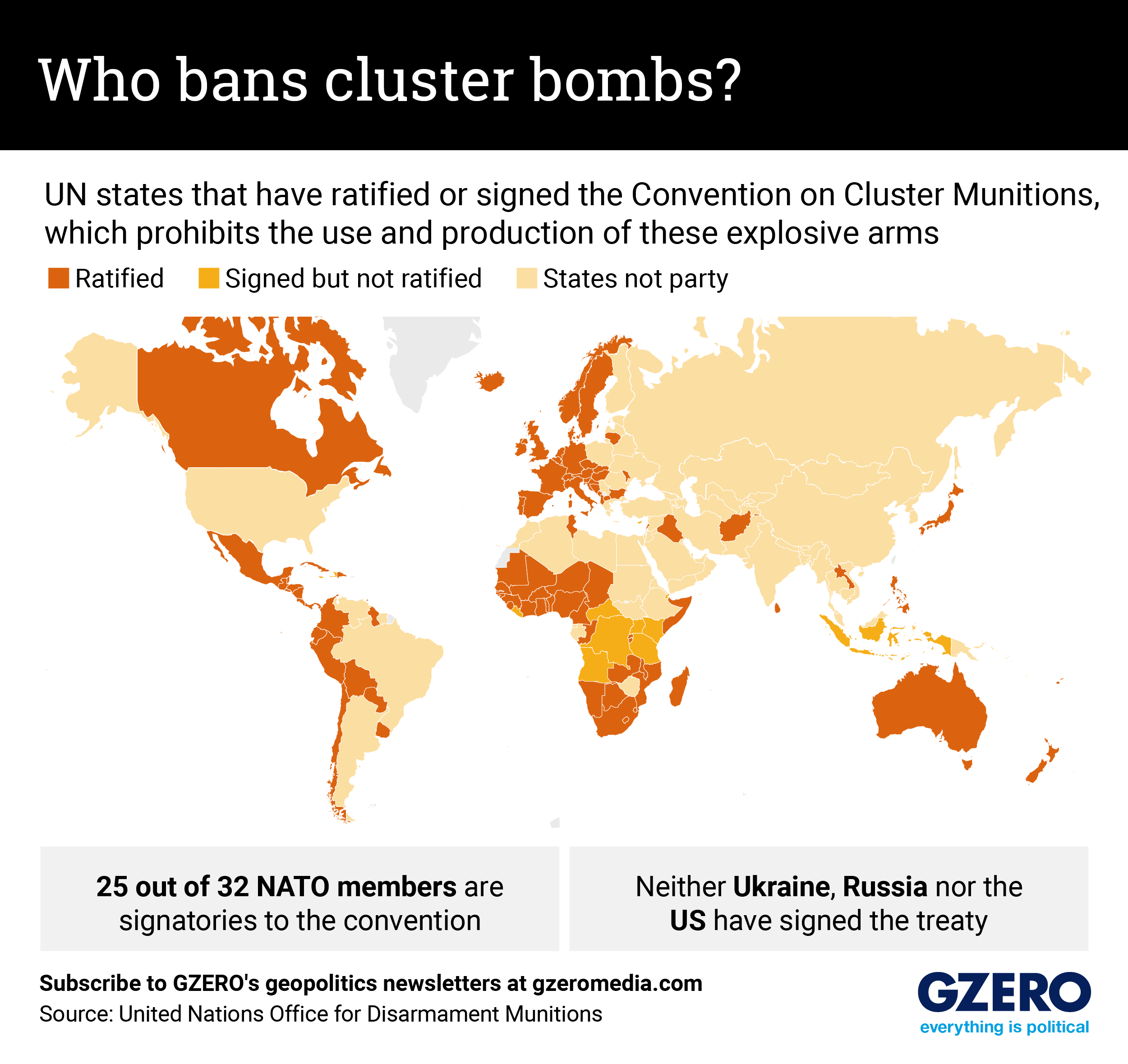July 11, 2023
The Biden administration recently made waves after agreeing to provide Ukraine with cluster munitions. That put the US at odds with key allies, like the UK, that disapprove of the move.
But what are cluster bombs, and why are they so contentious?
The explosives are versatile: They can be dropped from the air or fired from the ground or sea. Crucially, they might contain hundreds of smaller weapons — known as bomblets — that can be activated mid-air or on the ground. The combined fuze of these submunitions can cover an area the size of several football fields.
Cluster bombs are particularly contentious because some submunitions fail to explode. When they land on the ground, they become like landmines that are extremely dangerous for civilians — particularly children who might pick them up.
Because of the breadth and unpredictability of these weapons, since 2008 more than 100 countries have signed the UN Convention on Cluster Munitions, which bans the use, stockpiling, and production of these arms. Still, neither the US, Russia, nor Ukraine are signatories to the treaty, and the weapons have already been used by both sides during the ongoing war.
We take a look at which countries have ratified the treaty (they are legally bound by it), only signed on (showed an intention to comply with its terms), and those that have rejected it altogether.
More For You
Most Popular
- YouTube
For many in Iran, it’s a waiting game for how long Ayatollah Khamenei has left to live.
Iranian pro-government protesters wave national flags while participating in an anti-war protest gathering against the U.S. and Israeli military attacks in Iran, in Tehran, Iran, on February 28, 2026.
Photo by Morteza Nikoubazl/NurPhoto
The US and Israel struck several sites in coordinated attacks across Iran this morning. The total number of casualties across Iran is also unknown, though one of the missiles hit a girls’ school in Iran, reportedly killing 53 people.
- YouTube
The United States and Israel have launched massive military strikes on Iran. The stated goal: dismantle Iran’s nuclear program and ballistic missile capabilities. The unstated but increasingly clear objective: regime change. In this Quick Take, Ian Bremmer breaks down what this means.
© 2025 GZERO Media. All Rights Reserved | A Eurasia Group media company.
